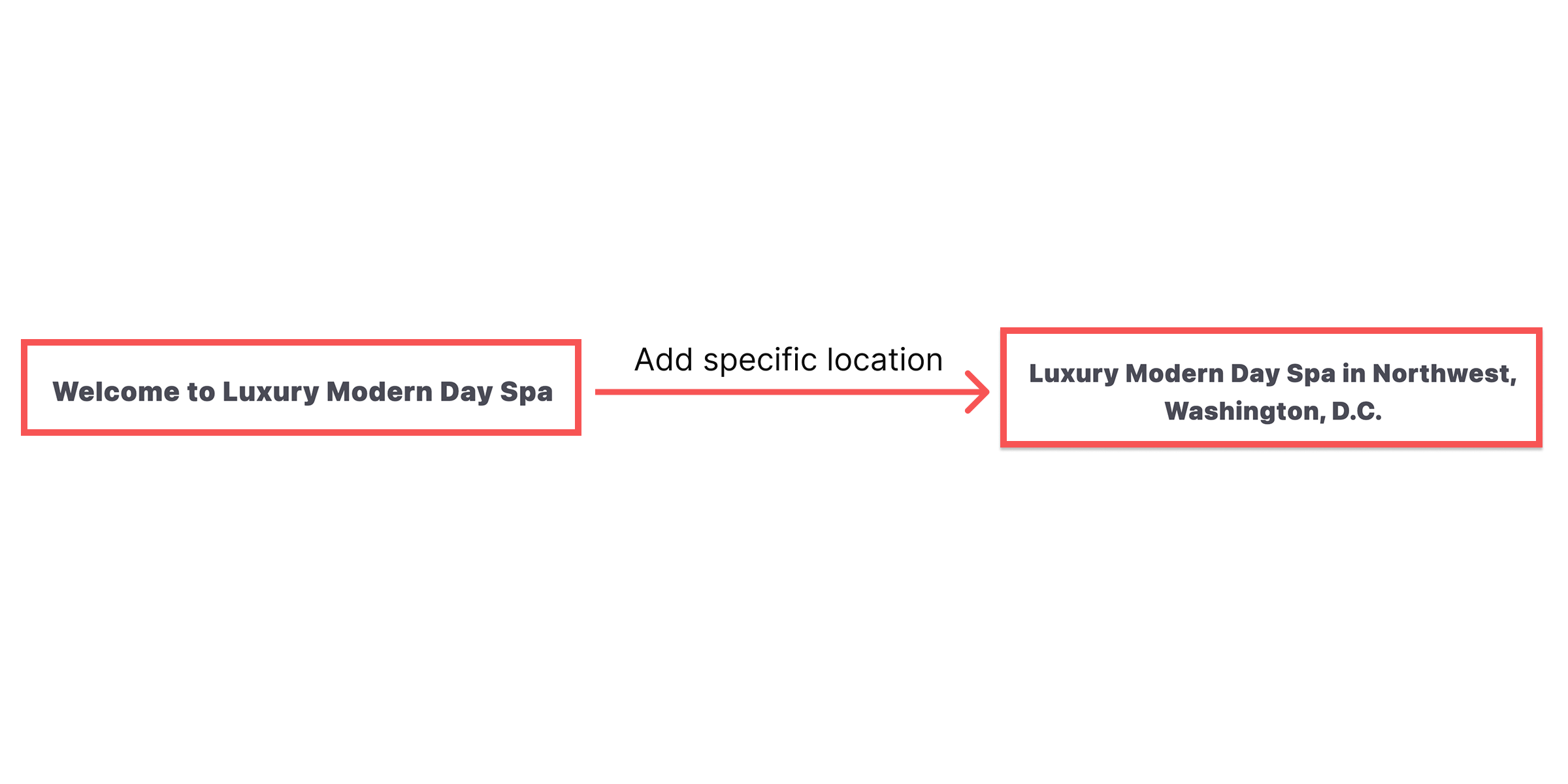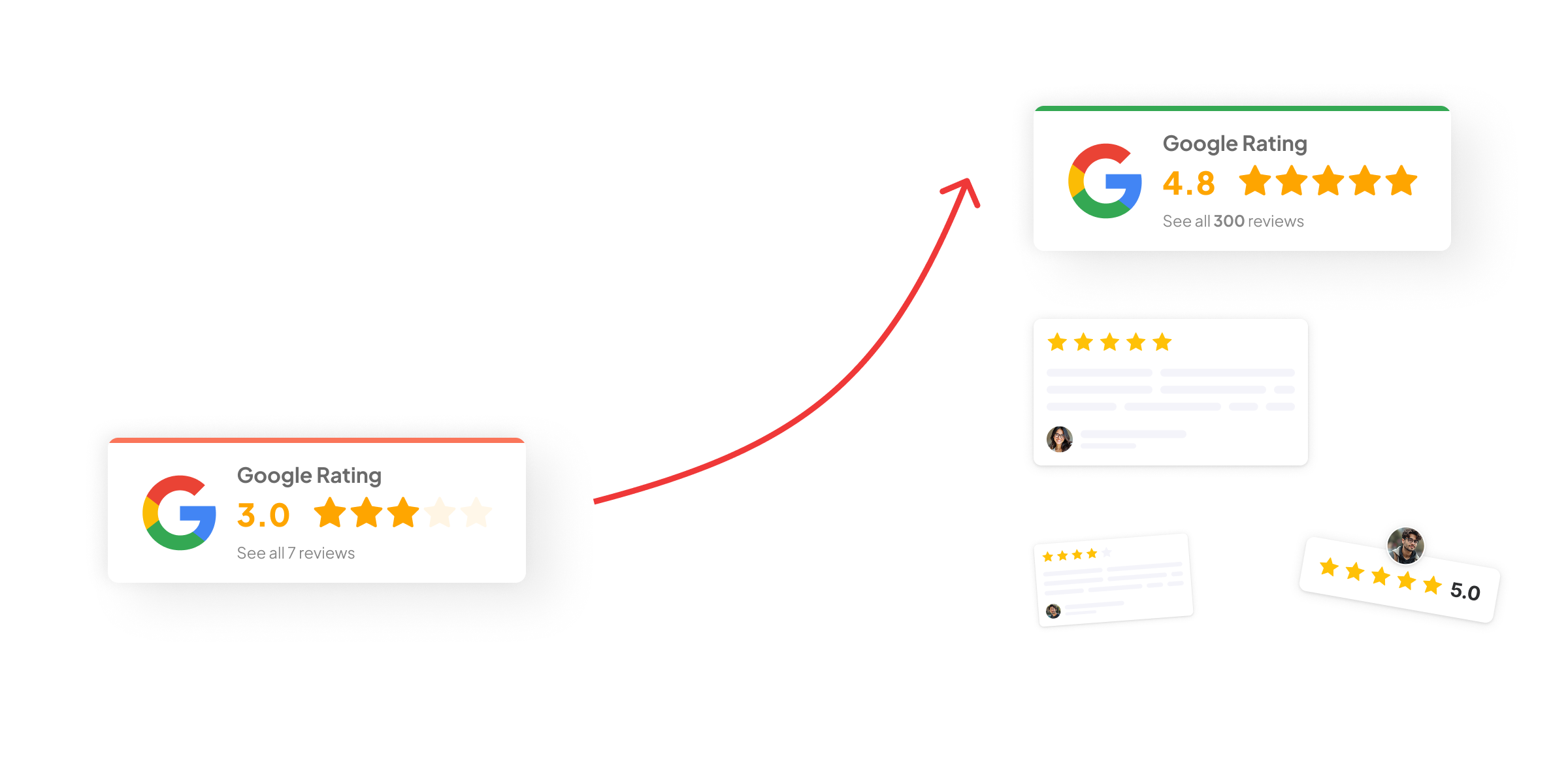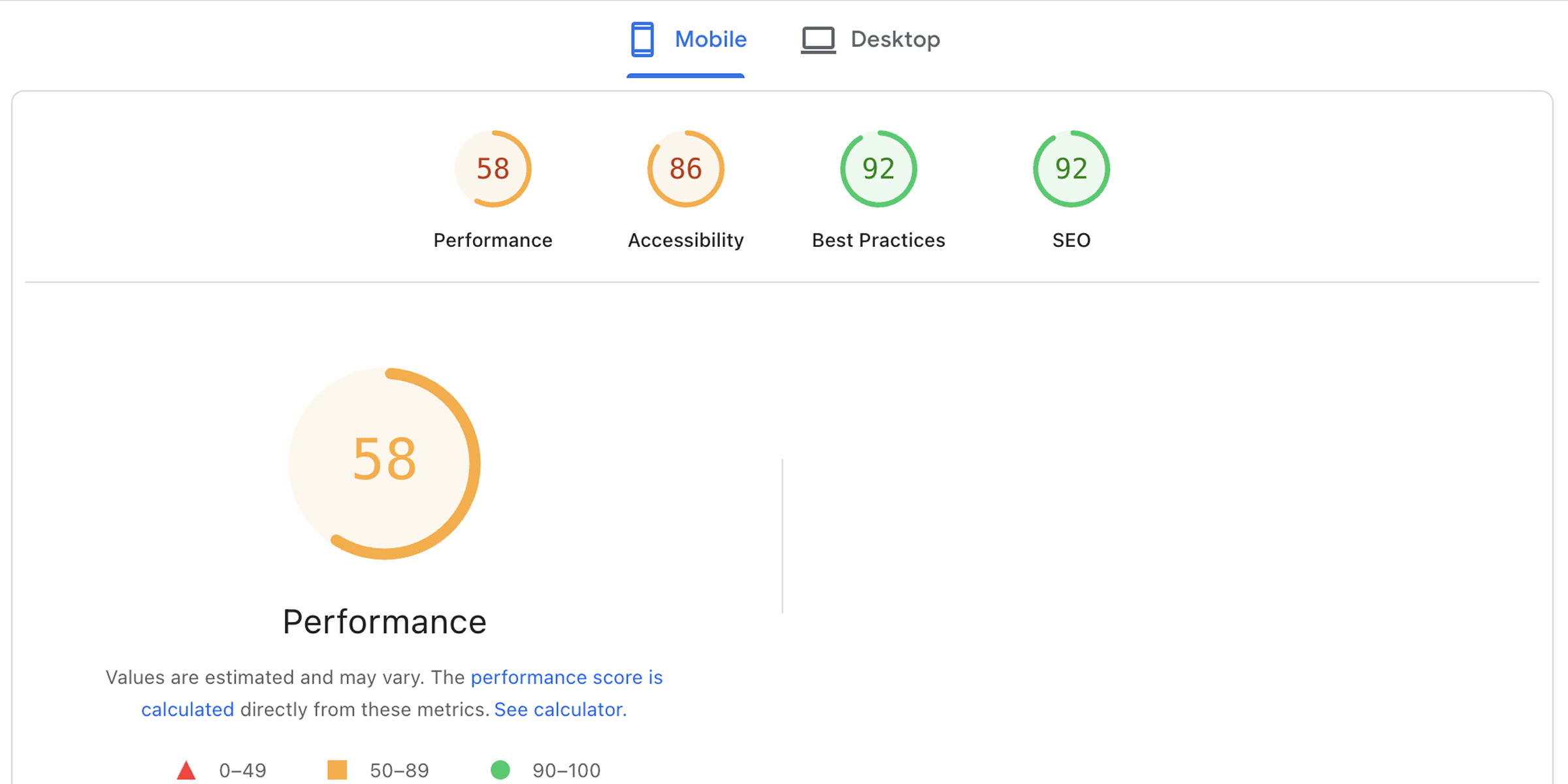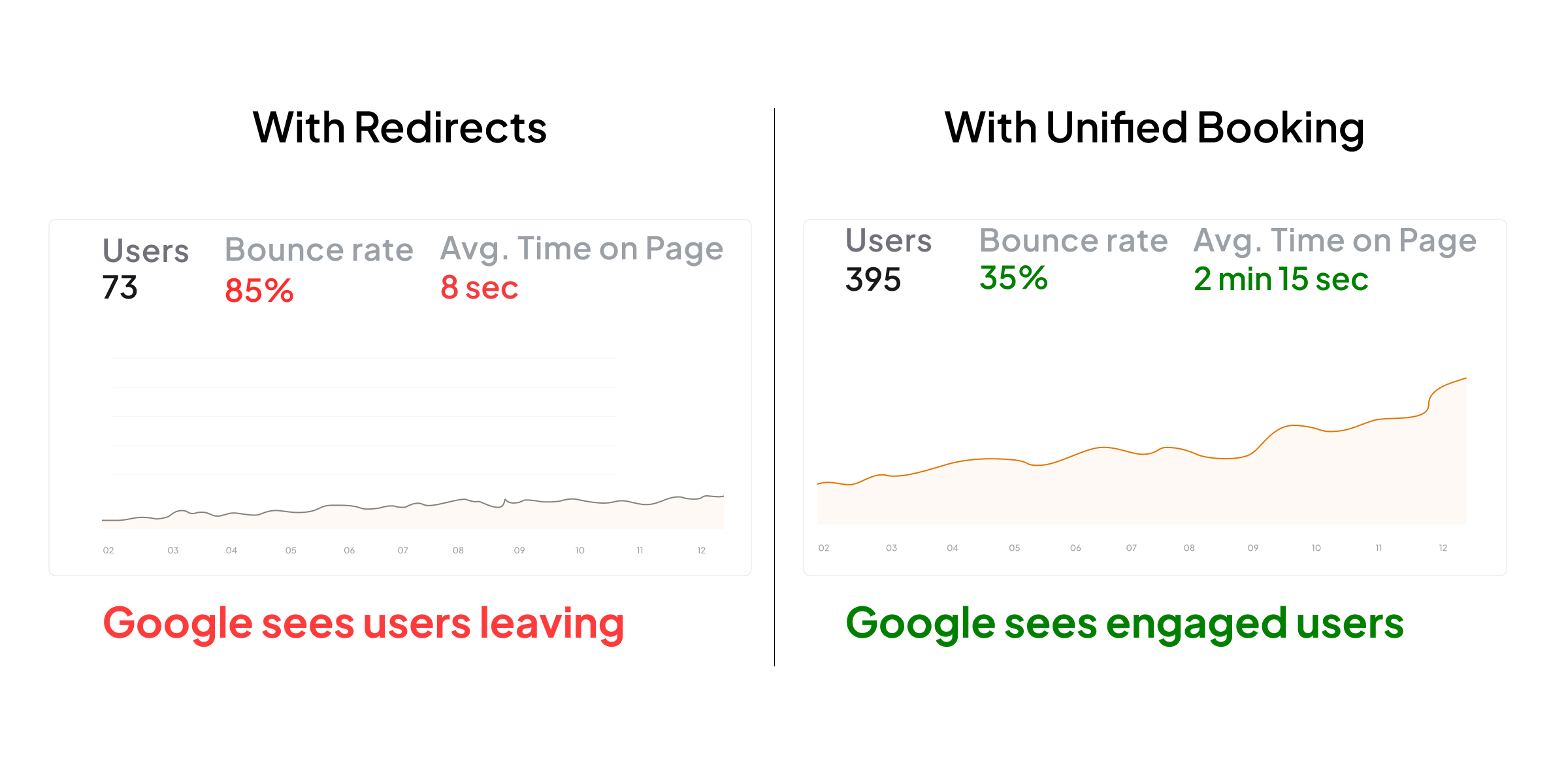Back to Blog
5 Things Spas Get Wrong on Google Rankings (And How to Fix Them)
⚡ Quick Fix Summary
- Add location keywords so your neighborhood can find you
- Get 50+ Google reviews so people trust you and choose you over competitors
- Speed up your site so Google ranks you higher and customers don't bounce
- Update content monthly so Google sees you're active and customers see fresh content
- Use unified booking so customers stay on your site and Google sees better engagement
1
Location Keywords Are Missing

The Problem:
- Your website says "Welcome to Luxury Modern Day Spa" but never mentions you're in Northwest, Washington, D.C.
Why it matters:
- People search "spa near me" or "massage in D.C."
- Many spas have their physical address on the contact page, but that's not enough
- Google needs location keywords in your actual content—titles, descriptions, and body text—not just buried in a contact page
- Your competitors are doing this and ranking higher
How to fix:
- Add location to page titles: "Luxury Modern Day Spa in Northwest, Washington, D.C."
- Include neighborhood and city in your main content, not just the contact page
- Blog posts: "Best time for a facial in Washington D.C.'s climate"
2
Not Getting Enough Google Reviews

The Problem:
- You have 15 reviews while your competitor has 150 reviews
Why it matters:
- Google uses review count and rating as a ranking factor
- You need 50+ reviews to be competitive in local search
- Fresh reviews matter—Google favors businesses with recent reviews
- More reviews = more trust from potential customers
- Your competitors with more reviews rank higher and get more bookings
How to fix:
- Use automation tools (like Elevient) to automatically send review requests via email or text after each service
- Or manually text every customer after their appointment with a review request
- Send a direct Google review link—make it one-click easy
- Respond to every review (even negative ones show you care)
- Set a goal: 2-3 new reviews per week
3
Poor Website Performance

The Problem:
- Your website is too slow—each image is 5MB and pages take forever to load
- 70% of spa searches are on phones, but your site isn't mobile-friendly
Why it matters:
- Google ranks slow sites lower—page speed is a ranking factor
- Mobile-first indexing means Google primarily uses your mobile version
- Slow sites hurt user engagement—people leave before pages load
- Poor mobile experience = higher bounce rate = lower rankings
Test yours:
- Go to pagespeed.web.dev and enter your URL
- Test both mobile and desktop versions
- Score under 50? You have a problem
- Open your site on your phone—can you book in 3 taps?
How to fix:
- Make images smaller before uploading—use free tools like tinypng.com to reduce file size
- Make buttons big and easy to tap on phones—your booking button should be impossible to miss
- Remove heavy videos from your homepage—they slow everything down
- Test your site on your phone—can you actually book an appointment easily?
4
Your Content Never Updates

The Problem:
- Your website looks exactly the same as it did 2 years ago. Google thinks you're inactive, and customers have nothing new to see when they visit.
Why it matters:
- Fresh content is a ranking factor in Google's algorithm—websites with regular updates rank higher
- Stale content = Google thinks you're out of business and ranks you lower
- Google actively looks for signs of an active business—regular updates are one of them
- Customers want to see recent photos and updates before booking
- Regular updates keep people coming back to your site
How to fix:
- Ask customers to share photos after their service—post these on your website and Google Business Profile
- Update your gallery monthly with new customer photos, seasonal decorations, or recent treatments
- Share customer testimonials and reviews on your website regularly
- Post photos of new products, services, or team members as they come in
- Create a simple system: after each appointment, ask "Would you mind sharing a photo of your experience?"
5
Ignoring User Engagement Signals

The Problem:
- Customers click "Book Now" and get redirected to a third-party site (Vagaro, Mindbody, etc.)
- Google sees users leaving your site immediately = high bounce rate
- Google interprets this as poor content quality and lowers your rankings
Why it matters:
- User engagement is Google's #5 ranking factor
- High bounce rate = Google thinks your content doesn't satisfy searchers
- Short time on page = Google thinks users didn't find what they wanted
- Redirects break the user experience and hurt your rankings
- Unified booking keeps users on your site, improving all engagement metrics
How to fix:
- Use unified booking—keep customers on your website, not redirected to third-party platforms
- Monitor your bounce rate in Google Analytics—aim for under 50%
- Increase time on page with engaging content and seamless booking flow
- Track pages per session—users should explore multiple pages
Learn more: Read our detailed guide on how booking redirects hurt your SEO: Why Your Spa Booking System is Killing Your Google Rankings
Start Boosting Your Google Rankings Today
Let Elevient help you fix these mistakes and get more bookings
Book Demo